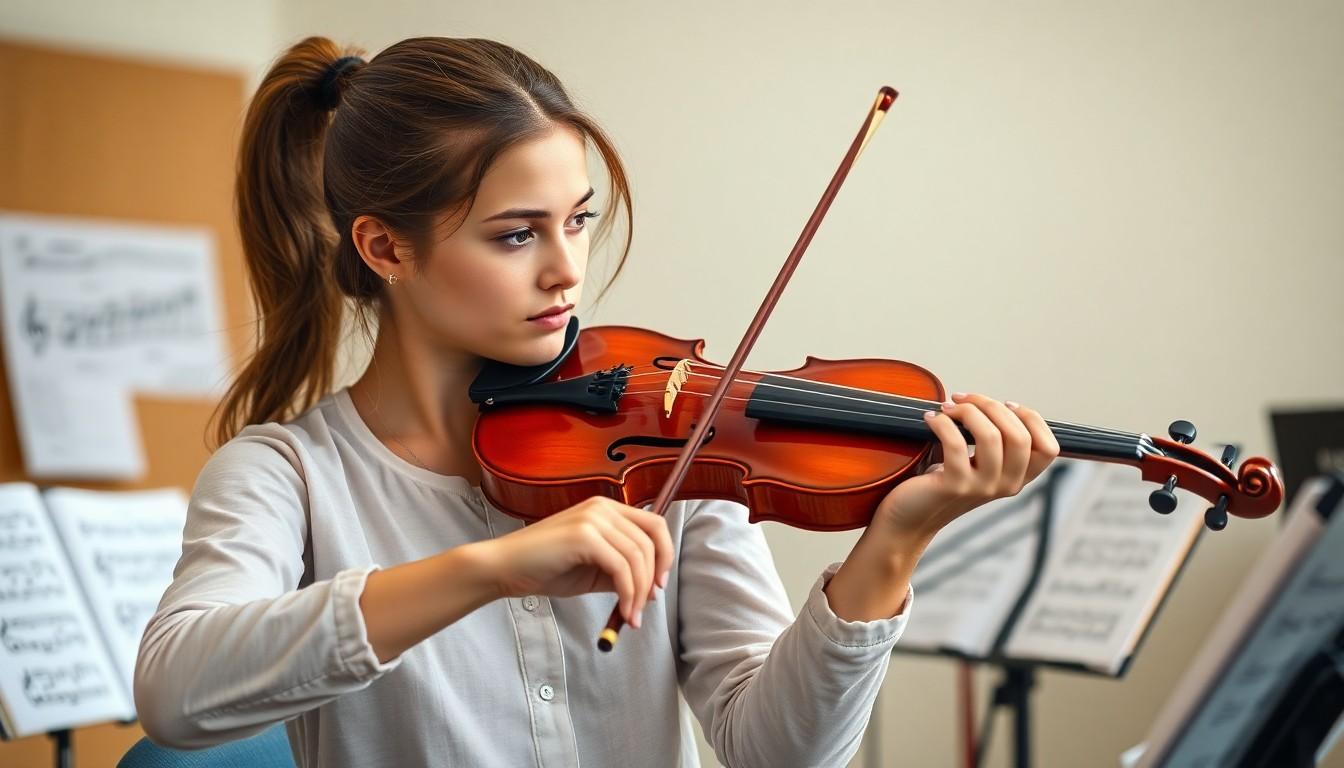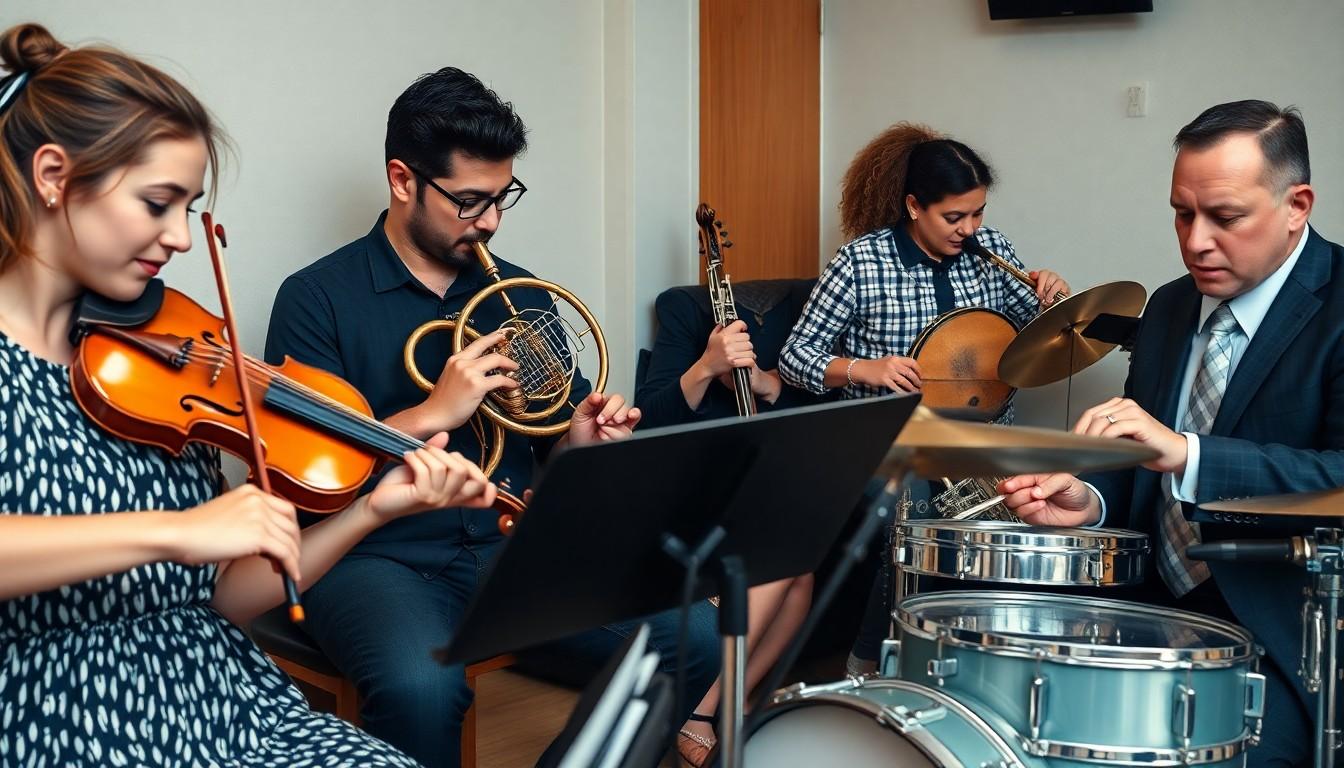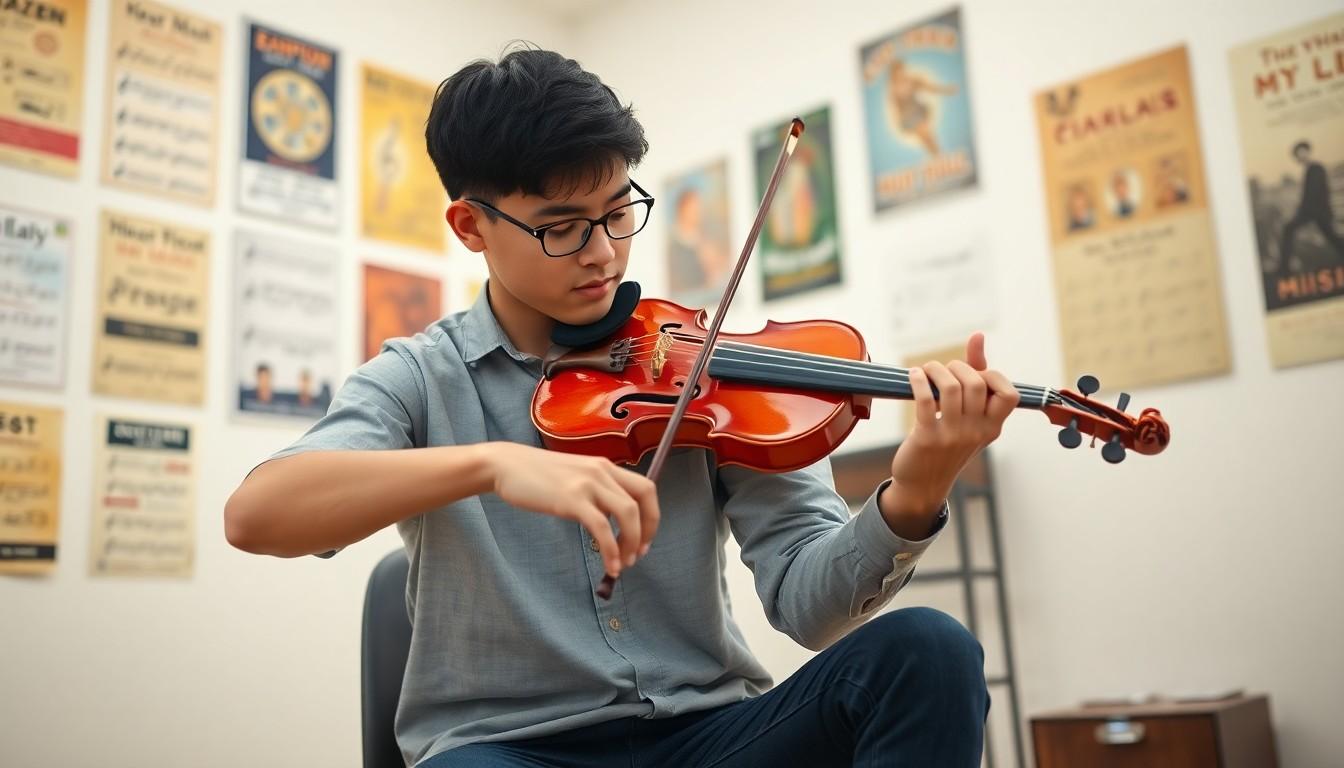Ever wondered which instrument truly tests a musician’s mettle? From the violin’s frantic finger dances to the piano’s relentless keys, the debate over the hardest instrument never ends. But there’s one contender that might just steal the spotlight.
Mastering the notoriously challenging [instrument name] demands not only skill but sheer determination. It’s not just about hitting the right notes—it’s about conquering every nuance and nuance with finesse. Whether you’re a seasoned player or a curious enthusiast, diving into the world of the hardest instruments could ignite your next musical adventure.
Discover what makes these instruments so tough to tame and decide for yourself if you’re up for the challenge. Get ready to embark on a journey that celebrates perseverance, passion, and the pursuit of musical excellence.
Hardest Instrument
Mastering certain instruments poses significant challenges. Various elements contribute to their complexity, and common beliefs often misrepresent these difficulties.
Factors That Contribute to Difficulty
Several factors determine an instrument’s difficulty. Technical complexity impacts mastery; intricate fingerings and rapid movements extend learning time. Physical demands are crucial; instruments like the French horn require precise breath control and embouchure strength. Hand-foot coordination complicates learning, evident in the piano’s extensive range. Repertoire complexity affects difficulty; advanced pieces demand high skill and interpretation. Additionally, tonal versatility adds to the challenge, requiring musicians to produce varied sounds. Consistent practice and dedication are essential to overcome these factors and achieve proficiency.
Common Misconceptions
Many believe the violin is the hardest due to intonation issues, yet each string instrument has unique challenges. Some assume all woodwinds share the same difficulty, ignoring differences between the oboe and flute. Percussion instruments are often thought to be easier, disregarding the precision and timing they require. There’s a myth that starting age determines difficulty, but dedication surpasses initial skill levels. Others think louder instruments are harder to master, not considering the fine control needed for subtle expressions. Clarifying these misconceptions provides a more accurate understanding of an instrument’s true difficulty.
Top 5 Hardest Instruments to Learn

Mastering a challenging instrument demands dedication and skill. Each listed instrument presents unique obstacles for aspiring musicians.
Violin
The violin’s difficulty stems from precise intonation and bowing techniques. Musicians must develop perfect pitch to maintain correct notes without frets. Additionally, mastering bow control requires coordinating speed, pressure, and angle consistently. Advanced repertoire demands agility and expressive tone, further increasing its complexity. Renowned orchestras often favor violinists who demonstrate exceptional technical prowess and emotional depth.
French Horn
Playing the French horn involves controlling breath and embouchure to produce accurate pitches. The instrument’s extensive range requires seamless transitions between registers. Limited valve positions complicate fingerings, making precise note changes essential. Additionally, the horn’s partials demand exceptional lip flexibility and endurance. Orchestral sections rely on horn players to deliver both power and subtlety, highlighting their technical mastery.
Oboe
The oboe’s double reed creates a distinct, penetrating sound but demands meticulous reed control. Musicians must balance breath support with precise finger movements to achieve stable intonation. The instrument’s intricate keywork requires dexterity and coordination for rapid passages. Additionally, maintaining a consistent tone across varying dynamics challenges players. Oboists often engage in continuous ear training to ensure pitch accuracy and expressive delivery.
Piano
The piano’s complexity arises from its polyphonic capabilities and extensive range. Players must coordinate both hands independently, managing rhythm, dynamics, and articulation simultaneously. Mastering complex fingerings and intricate passages demands significant practice and hand strength. Additionally, interpreting diverse repertoire styles requires deep musical understanding and versatility. Pianists often develop strong sight-reading skills to navigate challenging compositions efficiently.
Drums
Drumming challenges include mastering rhythm, coordination, and physical endurance. Players must synchronize multiple limbs to execute complex patterns and time signatures accurately. Developing dynamic control allows for expressive performances across various musical genres. Additionally, maintaining consistent tempo and precision during extended sessions tests stamina and focus. Drummers often refine their technique through rigorous practice and by studying diverse percussion styles.
Challenges Faced by Musicians
Musicians encounter various obstacles while mastering their instruments. These challenges require dedication and resilience to overcome.
Technical Skills Required
Mastering difficult instruments demands advanced technical proficiency. Precise intonation is essential for instruments like the violin and oboe, where slight deviations affect sound quality. Bow control and finger placement require meticulous practice. Piano players must coordinate both hands independently, managing complex polyphonic textures. French horn musicians navigate intricate lip flexibility and breath control. Drummers develop exceptional rhythm and limb coordination to maintain complex time signatures. Each instrument necessitates specific technical skills that contribute to its complexity, ensuring that only dedicated individuals achieve mastery.

Physical Demands
Playing challenging instruments imposes significant physical demands on musicians. Wind instruments like the oboe and French horn require strong respiratory systems and consistent breath support. String instruments such as the violin demand precise hand movements and sustained posture to prevent strain. Piano players must develop finger strength and dexterity for rapid key presses. Drummers engage multiple muscle groups simultaneously, maintaining stamina during lengthy performances. These physical requirements ensure that musicians maintain peak physical condition to perform effectively, highlighting the endurance needed alongside technical expertise.
Tips for Overcoming Difficulties
Mastering a challenging instrument requires strategic approaches. Implementing effective strategies can accelerate progress and enhance skill development.
Effective Practice Techniques
Incorporate structured practice sessions to maximize efficiency. Divide practice time into warm-ups, technical exercises, and repertoire. Utilize the Pomodoro Technique by practicing for 25 minutes followed by a 5-minute break, maintaining focus and preventing burnout. Set specific, measurable goals for each session, such as improving intonation on the violin or increasing tempo on the piano. Record practice sessions to identify areas for improvement and track progress over time. Apply slow practice for complex passages to ensure accuracy before increasing speed. Consistently vary practice routines to address different technical challenges, fostering overall musicianship. Additionally, use metronomes or backing tracks to develop timing and rhythm precision. Prioritizing consistent, goal-oriented practice builds a solid foundation for overcoming instrument-specific difficulties.
Seeking Guidance from Experts
Engage with experienced instructors to receive personalized feedback and tailored instruction. Schedule regular lessons to address specific technical challenges and refine techniques. Experts can provide insights into effective practice methods and offer solutions to persistent issues. Join masterclasses or workshops to learn advanced techniques and gain exposure to diverse playing styles. Collaborate with mentors who can share their experiences and strategies for mastering difficult instruments. Participate in ensemble groups to receive collective feedback and improve ensemble skills. Utilize online resources and connect with professional musicians through forums and social media for additional support and advice. Investing in expert guidance accelerates learning curves and ensures focused, efficient progress toward mastery.
Commitment
Mastering a challenging instrument is a testament to a musician’s dedication and passion. The journey, though demanding, offers immense rewards and personal growth. Embracing these complexities not only enhances musical abilities but also fosters resilience and perseverance. Whether choosing the violin, French horn, oboe, piano, or drums, the commitment to overcome obstacles leads to true musical excellence.




